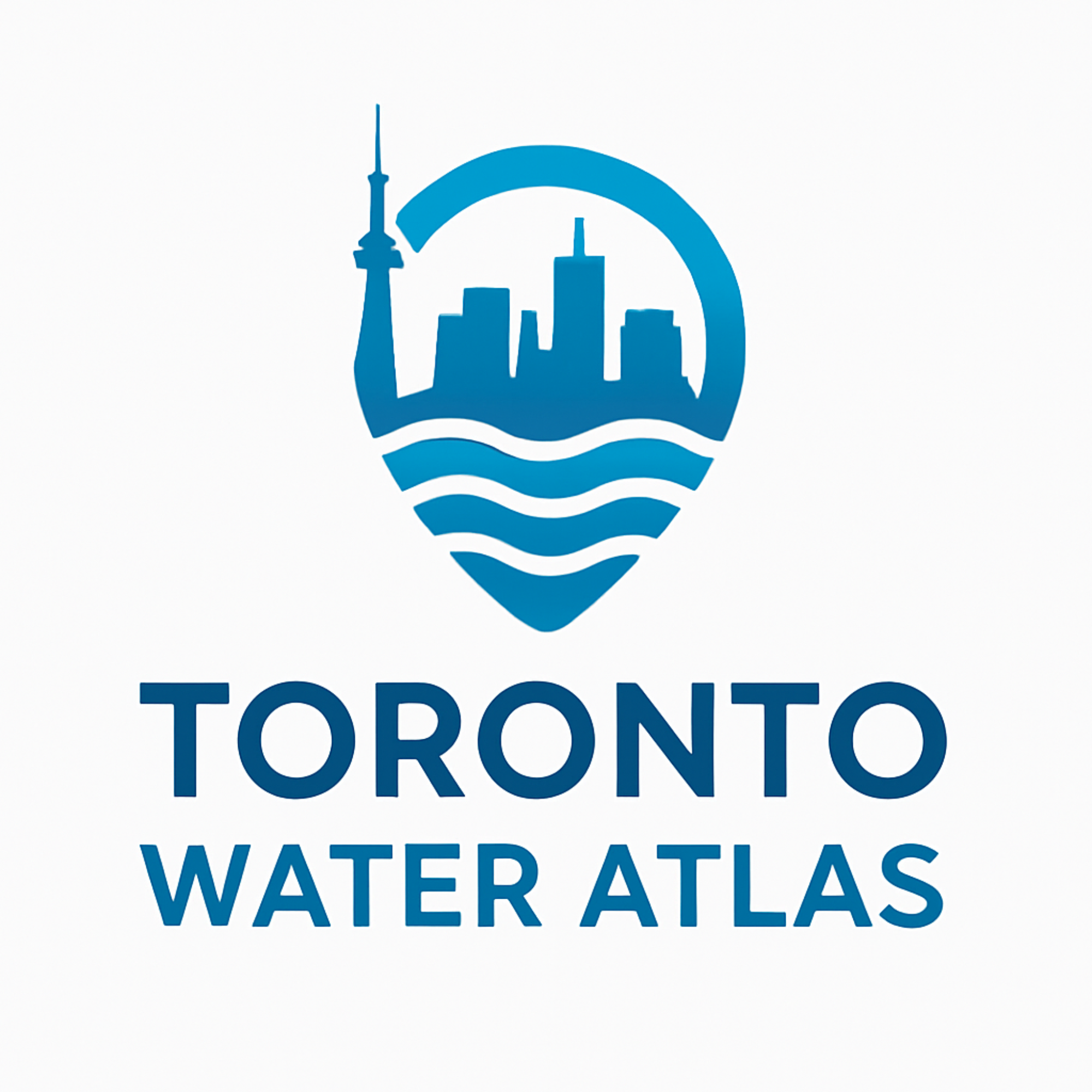About Us
Project Overview
The Toronto Water Atlas is an imaginative, interactive, and collaborative mapping project consisting of maps in different mediums, narratives and forms.
Taking inspiration from the willful, divergent, and messy interactions between people and water, it attempts to see and show the Greater Toronto and Hamilton Area’s rivers, creeks, and waterways differently. Toronto sits within interconnected watersheds shaped by longstanding relationships with water as living, relational, and shared. Yet far too often, these relationships and practices have existed at the margins of how the region understands and manages its water.
The Atlas attempts to change this by building an alternate, collective understanding of water through an emphasis on local experiences and ongoing traditions of stewardship, storytelling, and collective care. It invites us to imagine different futures of living with water. Going forward, the atlas will continue to grow as a public web resource, embracing new maps and contributions as more people share their own relationships with the region’s waterways. The aim of this project is to:
- Highlight a plurality of perspectives about the GTHA’s relationship with its rivers, creeks, and waterways.
- Build an alternate collective understanding of water through an emphasis on local experiences and knowledges.
- Reimagine what a future of living with water could look like for GTHA.
Why are these plural, and diverse perspectives about water important?
- Water Impacts Everyone, and Everything: Decisions about water—where it flows, who has access, and how it’s managed—are shaped by socio-political dynamics.
- Responding to Climate Change and Urban Resilience: As climate change drives more frequent and intense storms, our buried waterways resurface as floods. The intensification of flooding and water crises due to climate change requires alternate strategies informed by a collective and plurality of perspectives.
- Reimagining Relationships With Water: Water is deeply intertwined with the our past, and present, yet water is often hidden and forgotten today. Building an alternate, collective understanding can help us imagine a future of living with water.
- Alternate Approaches Require Diverse Expertise: Working towards this alternate approach requires insights from a range of disciplines.
Our Values & Approach
At the heart of the Toronto Water Atlas is a commitment to collaboration, care, transparency, and pluralism. We believe that how we talk about water—and who gets to shape that conversation—matters deeply. As a result, this project is grounded in the following values:
Collaboration: This is not a project being built for participants, but with them. Everyone involved is a co-creator, bringing their own questions, skills, and motivations. Contributions are made not for any one institution or individual, but in the spirit of shared inquiry and mutual learning.
Plurality and inclusivity: There is no single story of water in Toronto. The Atlas holds space for many voices and ways of knowing—including artistic, scientific, personal, Indigenous, and community-based perspectives. We actively seek to surface voices and water bodies that are often ignored or overlooked.
Shared ownership and long-term vision: While a small team is currently leading and managing the Atlas, the goal is for this project to take on a life of its own. We see this as an evolving platform that will grow over time, guided by those most committed to water justice, community storytelling, and climate futures in the GTHA. We are working toward a model of distributed authorship and shared stewardship.
Reflexivity and openness: We are learning as we go. We welcome critique, ideas, and feedback—especially when something isn’t working or could be made more inclusive, accessible, or meaningful.
Website and project development led by Taneea S Agrawaal
